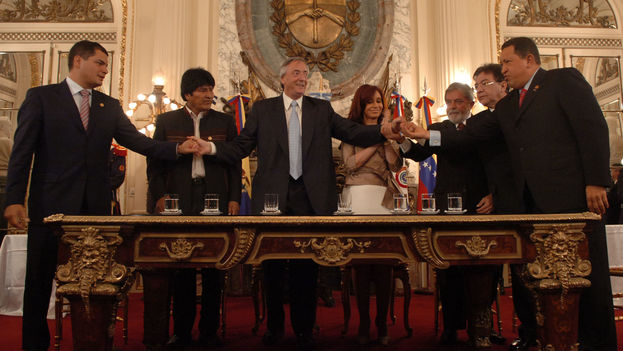
![]() 14ymedio, Jorge Hernandez Fonseca, 13 May 2016 – Like a good Brazilian novel, where the best scenes are reserved for the end, the Brazilian left is finally exiting the stage of that South American giant. This Thursday, having first served successive terms in the Chamber of Deputies and later the Federal Senate, Dilma Rousseff was officially informed that she had to step away from the presidency, to give her time to prepare her defense in front of the Senate.
14ymedio, Jorge Hernandez Fonseca, 13 May 2016 – Like a good Brazilian novel, where the best scenes are reserved for the end, the Brazilian left is finally exiting the stage of that South American giant. This Thursday, having first served successive terms in the Chamber of Deputies and later the Federal Senate, Dilma Rousseff was officially informed that she had to step away from the presidency, to give her time to prepare her defense in front of the Senate.
Supposedly, Rouseff has 180 long days for this purpose, but the incriminating evidence, as well as the fragility of the defense (although she says otherwise) portend a process that will not use up the available time. The suspended president argues that other presidents did the same thing she did, but without being sanctioned. However, the fact that others committed crimes does not authorize her to commit them. Dilma Rousseff will not return to the presidency of Brazil, and nor will her mentor and leader Lula de Silva, because their party emerges ethically tarnished after numerable cases of corruption.
It has to be said that Da Silva’s and Rousseff’s Workers Party (PT) only came to power by allying themselves (over these long 14 years in power) to Brazil’s largest party, the Brazilian Democratic Movement Party (PMDB). The PMDB’s departure from the coalition determined, in good measure, Rousseff’s fate in both the House and the Senate. Rousseff’s party was never the majority party in Brazil, and after the “armed assault” staged to steal by the fistful from the state oil company Petrobras, it will not be for the foreseeable future.
Rousseff argues that her actions were not a crime, but more than three-quarters of the House and Senate believe otherwise. All in the context of the moral decadence of her party. The treasurer of Rousseff’s party is in jail, as is the head of the president’s last election campaign, both of them accused of corruption.
The fall of the main bastion of the South American left is nothing more than the continuation of the collapse of the Castro-Chavez project in Latin America, after the fall of Cristina Kirchner in Argentina, the victory of the opposition in the National Assembly elections in Venezuela, Evo Morales’s loss in a referendum to allow his reelection in Bolivia, and Rafael Correa’s agreeing not to run again for the presidency of Ecuador.
The South American subcontinent is beginning to emerge from the long night in which it was mired in left-wing populism promoted by Castro-Chavezism, and hopefully these democratic winds from the south, will reach Venezuelan soil first and Cuban soil afterwards, bringing the democracy that we Latin Americans desire and deserve.
